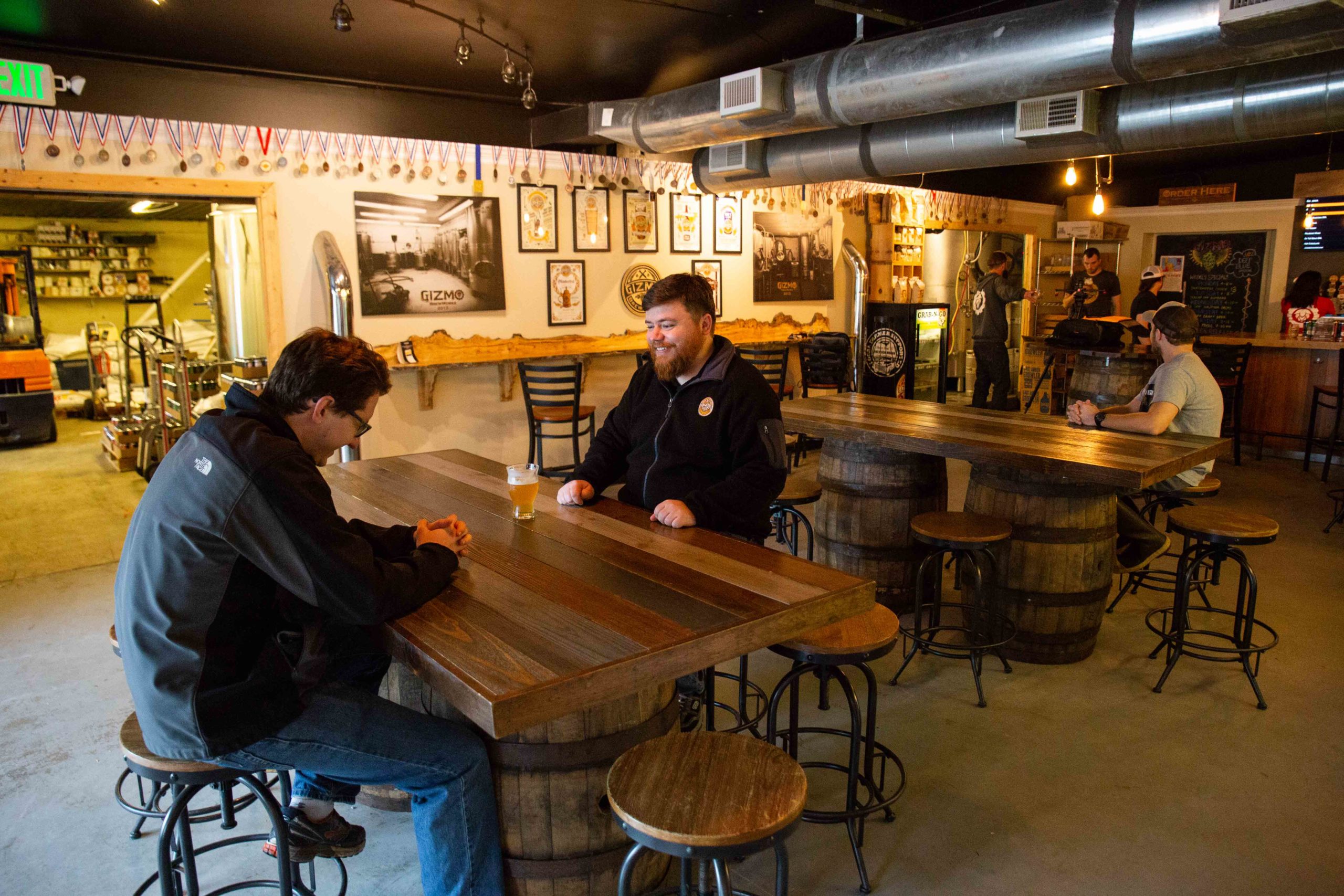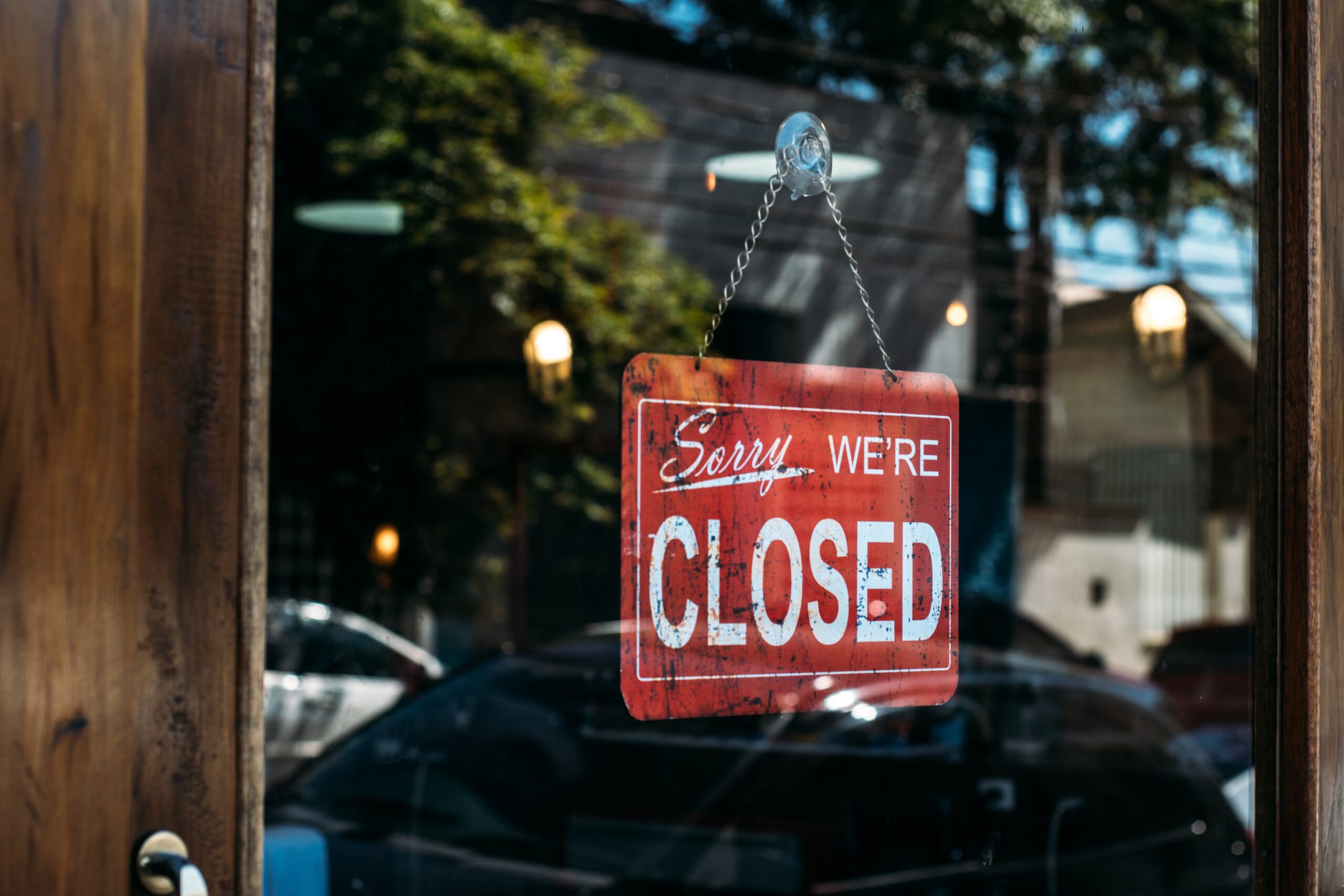Everyone has at least one story of a taproom manager who they did not get along with for one reason or another. On the flip side, we all remember the managers who kept us motivated to do a great job. Either way, leadership is obviously important.
While browsing the Facebook group Craft Beer Professionals, a spot where craft beer makers share industry knowledge and ask questions of their fellow brewers, we found a post seeking advice for new front-of-house (FOH) managers that inspired us. So, here is our list of recommendations for a taproom manager.
1. Lead by Example
Don’t ask your employees to do anything you wouldn’t do yourself. After all, you’re a leader. Jumping in to bus tables, running food, and cleaning the bathrooms will show your team that you appreciate the work they put in every day.
Remember that not everyone is going to have a great day every day. Your team is going to have off days when they need a little extra help. Be there to show them how to support each other.
Be willing and able to show your team how to give feedback. If something is going wrong, instead of getting frustrated and only dishing out critiques, tell your team members how they can improve.
Communication is a two-way street, however. That means you need to listen to your employees when they have something to say. Just as you’d expect them to pay attention to your feedback, you should be receptive to their comments and remember the power dynamic in play — it’s not always easy to speak up. This will work in your favor when your employees feel like they can come to you when they’re struggling (whether that’s at work or in life).
2. Provide Your Employees with Educational Opportunities
When you go to a restaurant and ask what your server’s favorite dish is, how would you feel if they shrugged their shoulders and told you they’d never eaten any of the food? Not great.
It’s always a safe bet to give your employees more knowledge about your offerings than you (or they) think they need — especially with something as complex and lingo-heavy as beer. If someone walks in the door asking for a recommendation, your team should be able to help them make a decision and feel empowered while doing so. Don’t be the exclusive hipster stereotype every comedian loves to poke fun at.
Provide education on the clock. It’s part of your staff’s job to have this knowledge and it’s up to you to make sure they get the best education out there. There are plenty of resources available. The Cicerone Certified Beer Server program could allow your servers/bartenders to learn more about styles of beer, how to pour, cleaning glassware properly, and more. They do charge a fee to take the certification exam. But, even if you’re on a budget, Cicerone has a lot of educational materials. Beer Advocate also has a site full of material called Beer 101 and CraftBeer.com has a master list of programs online and at universities across the country.
3. Always Communicate
Though having super powers would be pretty cool, no one can read your mind. Check in with employees regularly to make sure you’re on the same page when it comes to expectations.
You should let employees know when they’re doing a good job and share constructive feedback as needed. The idea of praising in public and coaching in private stands tall here. Be honest with your team. Highlight their successes and help them with their failures.
Scheduling regular performance reviews can provide another line of communication between you and your team. Setting aside time for one-on-one evaluations demonstrates to your employees that you care about their success as individuals and that you want to help them grow as team members and as people. Plus, it provides a designated time for employees to come to you with questions, concerns, and feedback.
Finally, use technology to your advantage. We’re in 2021, after all. Using apps like Slack to communicate with employees will improve your overall efficiencies and let your staff know that you care about keeping them in the loop. According to our 2020 Tech Stack Report, 68% of breweries and cideries communicate with their employees via text messages, 31% via Slack, and 14% via Google Hangouts.
4. Be Respectful, Be Kind, & Hold People Accountable
It’s incredibly important to strike a healthy balance between having a great relationship with your employees and making sure they get their work done. So, be sure to build rapport with your employees by letting them have fun, but don’t be a doormat. If someone’s performance is suffering because they’re goofing off, tell them. Employees will respect that you’re both kind and have boundaries. Again: lead by example! It’s possible to get your work done as a taproom manager and have fun.
5. The Customer Is Not Always Right
Contrary to popular belief, the customer is not always right. Strike a balance between being accommodating and laying down the law. You wouldn’t let your neighbor come inside your house and start telling you how to decorate, would you?
Always back up your team in front of customers. If a customer tries to tear your employee down, it’s important to demonstrate that you value your team’s commitment to your business and won’t let guests walk all over them for a few bucks. Besides, not all customers are worth keeping. If they are rude and unruly, you don’t want to deal with that in your taproom.
Remember that, culturally, we’re living in a time where some people feel empowered to treat others poorly. In fact, the pandemic in particular has given rise to more unruly customers and attacks on retail workers and restaurant staff alike, particularly as tensions surrounding COVID-19 and vaccine requirements for businesses rise. While you should set the expectation that employees will be respectful and polite to customers, it’s worthwhile to stand up for your team if customers are behaving poorly.
6. Take Care of Yourself & Your Employees
Remember: At the end of the day, we are all human. You can’t work nonstop, and neither can your employees. Have patience and be understanding for your team and yourself.
Don’t stay way later than you should and be sure to delegate. Burnout is real, and you need to get ahead of it before it happens.
Host employee bonding events regularly. Close for one day every six months (or however frequently works for you) and take your employees to do something fun together. Make it an event everybody has some interest in, and do all you can to make sure the event is accessible.
Free Range Brewing recently closed for a day to take their staff apple picking and to a brewery. These events show appreciation and build camaraderie, two things that are essential when working on a team. Harvard Business Review writes about the importance of having friends at work. And while this might mostly refer to traditional office spaces, having friends at work does make you want to go and work harder.
7. Don’t Forget to Reflect
No one ever got better at something new by doing the same thing over and over — the same is true for managing a team of people. Trial and error plus some healthy reflection can help you be a better taproom manager.
There are a lot of ways to reflect, especially with today’s connected digital landscape where you can create surveys and find lots of professional development content online. Find strategies that work for you. This could mean:
- Journaling
- Seeking feedback from employees and fellow taproom managers (in person or through online surveys)
- Professional development trainings and webinars
- Connecting with other FOH managers (look for virtual or physical groups)
- Posting to industry groups, like Craft Beer Professionals, on social media
There is no one-size-fits-all approach, so take some time to evaluate what works for you.
Naz Beheshti, an executive wellness coach and consultant, recommends that all leaders take a few minutes each day for self-reflection. Whether that comes from a methodical list of questions or a free write, she says that this personal honesty will help with decision-making, communication, and learning. She also says that self-reflection doesn’t have to be self-critical. In fact, she says that if negative thoughts about your work come easier, you should counterbalance those thoughts with something positive.
Like we said, nobody’s perfect. You’re going to mess up. But, when you do, own up to it and let your interpersonal skills and desire to get better propel you toward success as a taproom manager. And, if you made it through this whole article, you’re already on the right track by seeking ways you can be the best taproom manager possible.



